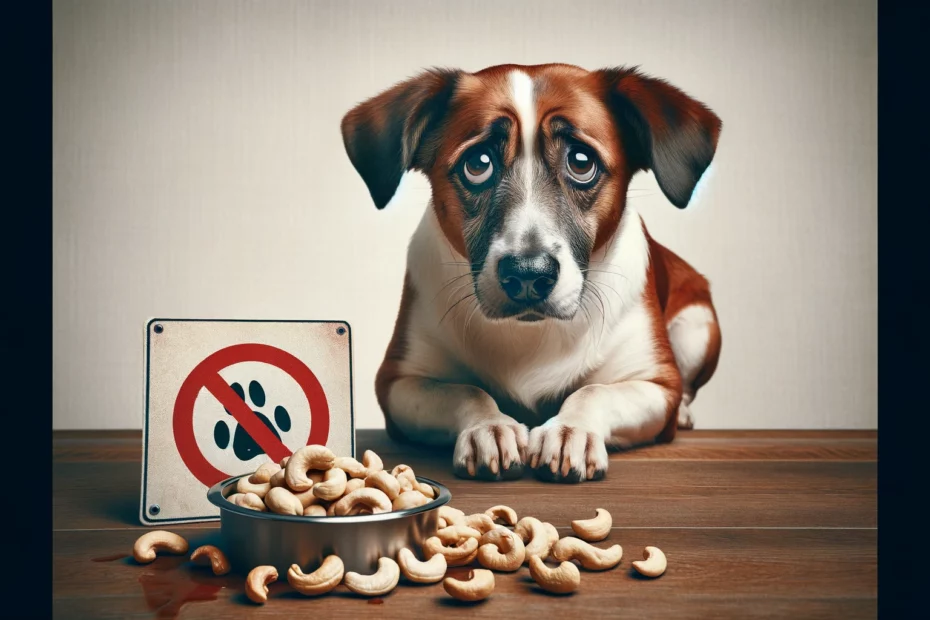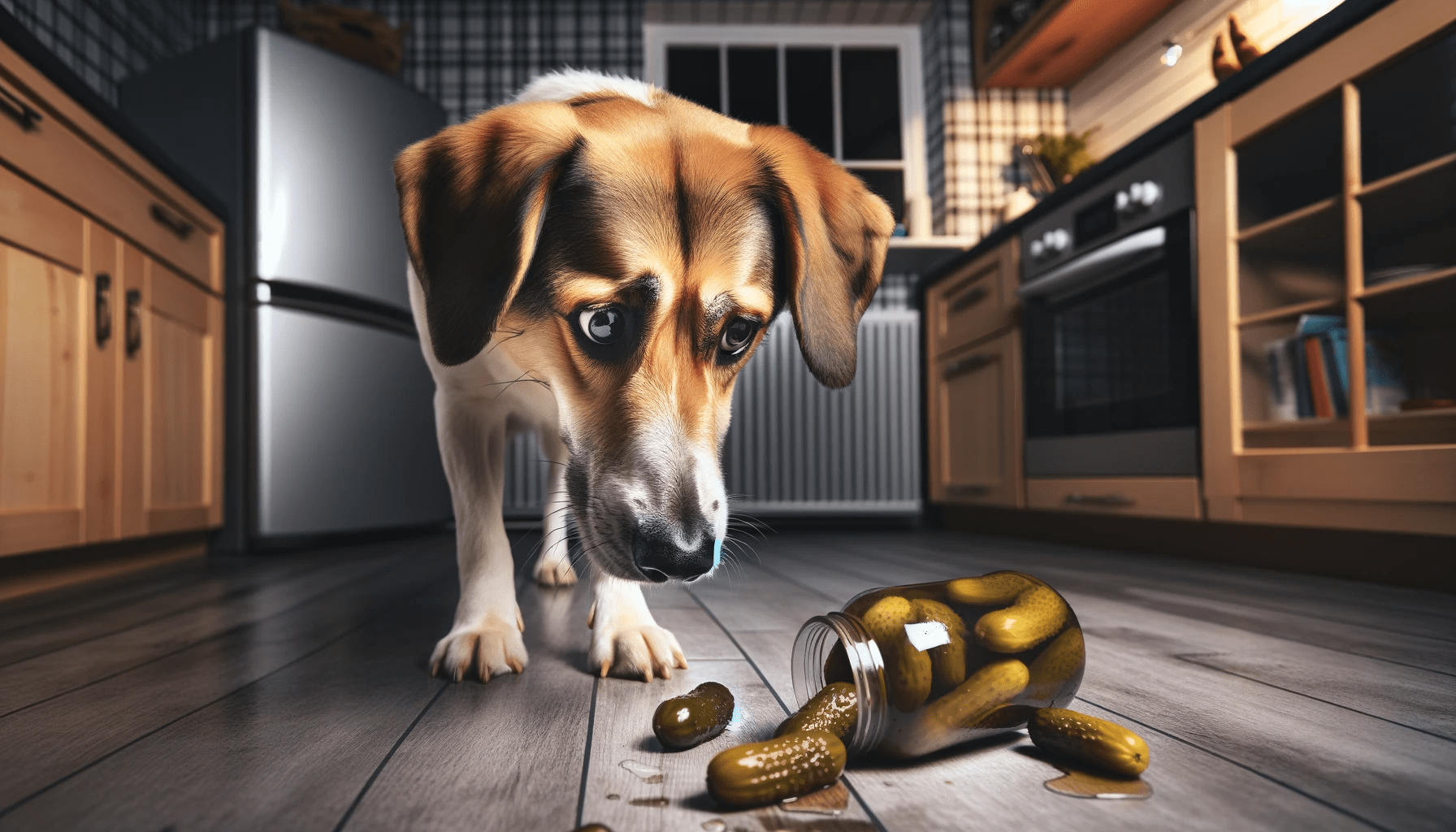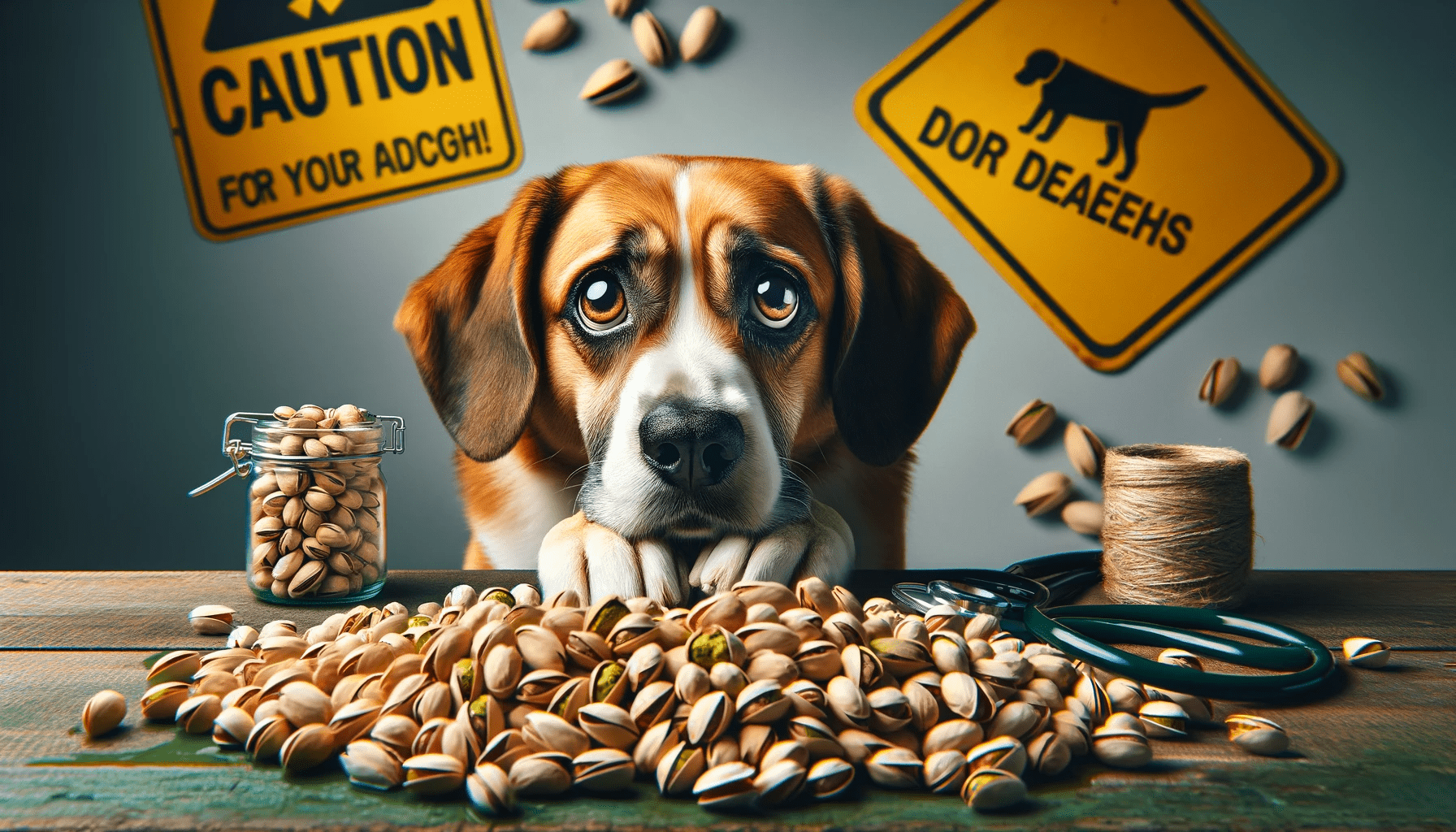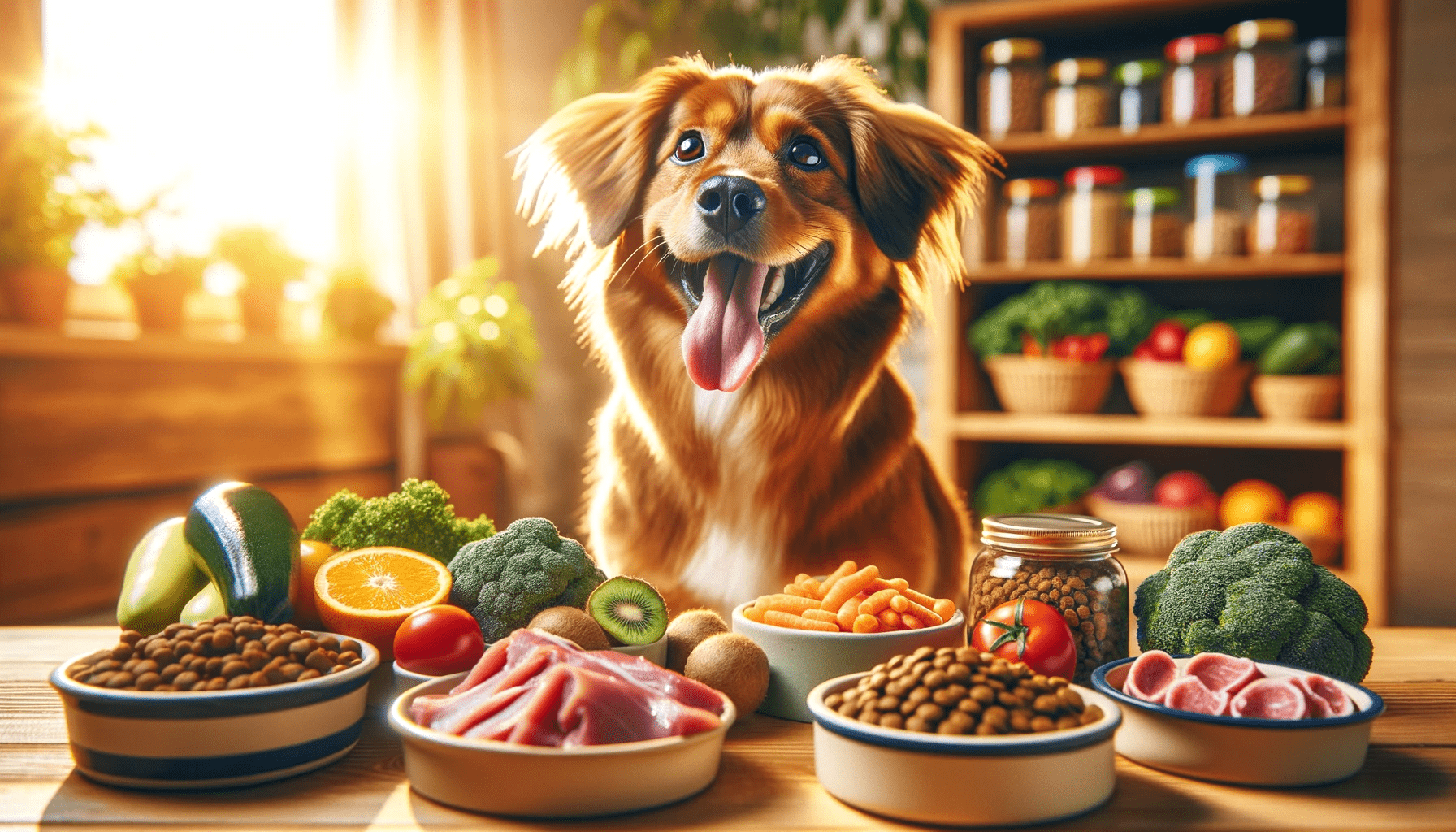Are you wondering if cashews are bad for dogs?
While cashews can be a tasty snack for humans, they may not be the best choice for your furry friend. Cashews are high in fat, which can lead to health issues like pancreatitis and obesity in dogs.
Feeding cashews to dogs should be done sparingly and in small quantities. It’s important to avoid salted or seasoned cashews, as these can be harmful to dogs. Additionally, it’s crucial to monitor your dog for any signs of allergies or digestive issues after giving them cashews.
Before introducing cashews or any other human food into your dog’s diet, consulting a veterinarian is recommended.
So, while cashews are not necessarily bad for dogs, it’s best to give them with caution and in moderation.
Key Takeaways
- Cashews are high in fat, which can lead to health issues like pancreatitis and obesity in dogs.
- Feeding cashews to dogs should be done sparingly and in small quantities.
- Avoid salted or seasoned cashews, as these can be harmful to dogs.
- It’s crucial to monitor your dog for any signs of allergies or digestive issues after giving them cashews.
Potential Risks of Cashews for Dogs
Feeding dogs cashews can pose potential risks to their health and well-being. While cashews may seem like a tasty and nutritious treat, it’s important to be aware of the potential dangers they can present to our furry friends.
Firstly, cashews are high in fat and protein, which can lead to pancreatitis and obesity-related problems in dogs. Pancreatitis is a serious condition that can cause inflammation of the pancreas and digestive issues. Additionally, regularly feeding cashews to dogs can contribute to weight gain and obesity, which can lead to a range of health issues such as diabetes and joint problems.
Moreover, some nuts, like macadamia nuts, are toxic to dogs and can often be found in variety packs with cashews. It’s crucial to be cautious when offering any type of nut to your dog, as they can cause adverse reactions or even be fatal if ingested in large quantities.
Lastly, nuts can also pose a choking hazard, especially for small dogs or large breeds with narrow airways. It’s always important to prioritize the safety of our furry companions when it comes to feeding them any food, including cashews.
Allergic Reactions to Cashews in Dogs
If your dog has a cashew allergy, they may experience symptoms such as swelling, itching, and hives.
It’s important to closely monitor your dog for any signs of an allergic reaction when introducing cashews for the first time.
If your dog shows any signs of an allergic reaction, it’s recommended to consult a veterinarian for proper diagnosis and treatment.
Cashew Allergy Symptoms
When introducing cashews to your dog, watch for signs of allergic reactions such as swelling, itching, or hives. Allergic reactions in dogs can occur when they eat cashews or any other type of nuts. It’s important to be aware of the symptoms of an allergic reaction in dogs to ensure their well-being.
If your dog exhibits any of these symptoms after consuming cashews, it’s recommended to seek veterinary attention immediately. The symptoms may vary from mild to severe, and can include gastrointestinal distress, difficulty breathing, vomiting, or diarrhea.
Additionally, dogs with known allergies to other foods may be more prone to developing allergic reactions to cashews. Therefore, it’s crucial to be cautious when introducing cashews into your dog’s diet and to monitor them closely for any signs of an allergic reaction.
Treatment for Cashew Allergies
To effectively address cashew allergies in dogs, you should consult a veterinarian for proper treatment options and advice. If your dog shows symptoms of an allergic reaction after consuming cashews, it’s important to seek professional help.
Cashews are known to be toxic to dogs and can cause stomach upset. The symptoms of an allergic reaction may include swelling, itching, and hives.
Treatment for cashew allergies in dogs may involve avoiding cashews altogether and seeking alternative dog-friendly snacks for better nutritional balance. It’s crucial to monitor your dog for signs of an allergic reaction when introducing any new human food.
Health Hazards of Cashews for Dogs
Feeding cashews to your dog can lead to digestive issues, as their high fat and protein content can increase the risk of pancreatitis.
Additionally, cashews can cause allergic reactions in dogs, resulting in symptoms such as swelling, itching, and hives.
It’s also important to be aware of potential toxicity, as some nuts, including cashews, can be toxic to dogs, especially when found in variety packs with other nuts.
Digestive Issues in Dogs
If your dog consumes large quantities of cashews, it can lead to digestive issues such as pancreatitis, obesity-related problems, and potentially life-threatening conditions.
Cashews have a high-fat content, which can be difficult for dogs to digest in large amounts. Pancreatitis, inflammation of the pancreas, can occur when dogs consume high-fat foods like cashews. This condition can cause symptoms such as vomiting, abdominal pain, and loss of appetite.
Additionally, the high fat content in cashews can contribute to weight gain and obesity in dogs, leading to a variety of health issues such as joint problems and heart disease.
It’s important to give cashews to dogs in small quantities and as an occasional treat, especially for small dogs who are more susceptible to digestive issues. Always consult with your veterinarian before introducing new foods into your dog’s diet to ensure their health and well-being.
Allergic Reactions in Dogs
When giving cashews to your dog, it’s important to be aware of the potential health hazards they can pose, including the risk of allergic reactions. While cashews are generally safe for dogs to consume, some dogs may develop allergies to this particular food.
Allergic reactions in dogs can manifest as swelling, itching, and hives. It’s crucial to closely monitor your canine companion for any signs of an allergic reaction when introducing cashews into their diet for the first time. If your dog shows any of these symptoms, it’s recommended to consult a veterinarian for further guidance.
Feeding your dog cashews should be done sparingly and not on a regular basis. Additionally, it’s advisable to opt for unsalted cashews, as they’re a healthier choice for your furry friend due to their content of healthy fats.
Potential Toxicity in Dogs
Dogs can experience potential toxicity when consuming cashews in excessive amounts. While cashews are generally safe for dogs to eat, it’s important to be cautious about the quantity and frequency of feeding cashews to your furry friend.
Cashews contain a high amount of fat, which can lead to pancreatitis in dogs if consumed in large quantities. Pancreatitis is a serious condition that can be life-threatening for dogs.
Additionally, cashews can also cause allergic reactions in some dogs, which may manifest as swelling, itching, and hives. It’s recommended to feed cashews to dogs sparingly and preferably in small quantities.
If you want to offer your dog the taste of cashews, you can consider dog-safe cashew butter, which is specifically made for canine consumption. Remember, moderation is key to prevent potential toxicity in dogs.
Negative Effects of Cashews on Dogs
Feeding cashews to your furry companion can have negative effects on their health. While cashews may seem like a tasty and nutritious snack for humans, they can actually be harmful to dogs. One of the main concerns is the high fat content of cashews. Dogs have different dietary needs than humans, and consuming foods high in fat can lead to various health issues. Cashews contain a significant amount of fat, which can contribute to weight gain and obesity in dogs when consumed in large amounts.
Furthermore, the consumption of cashews in large quantities can increase the risk of pancreatitis in dogs. Pancreatitis is a condition characterized by inflammation of the pancreas and can be potentially life-threatening for dogs. The high fat content in cashews can trigger the onset of this condition, leading to severe abdominal pain, vomiting, and diarrhea.
It is also important to note that some nuts, including macadamia nuts, are toxic to dogs. Cashews are often found in variety packs with macadamia nuts, posing a potential danger to dogs if ingested. Additionally, nuts can pose a choking hazard, especially for small dogs or those of larger breeds, which can result in potential health issues.
Dangers of Feeding Cashews to Dogs
If you regularly give your furry friend cashews, you may be unaware of the potential dangers they pose. Cashews are high in fat, which can lead to various health issues in dogs. One of the major risks is pancreatitis, a condition characterized by inflammation of the pancreas. Dogs with pancreatitis may experience symptoms such as vomiting, diarrhea, abdominal pain, and loss of appetite. Feeding cashews in large quantities can exacerbate this condition and put your dog’s health at risk.
Furthermore, some store-bought cashew butter may contain toxic nuts, such as macadamia nuts, which can be harmful to dogs if ingested. This is particularly concerning if you offer your dog variety packs that include cashews. Additionally, cashews can pose a choking hazard, especially for small dogs or those with large breeds. It’s important to feed cashews sparingly and not on a regular basis to prevent any potential choking incidents.
Moreover, dogs can develop allergic reactions to cashews. If your dog experiences symptoms such as swelling, itching, or hives after consuming cashews, it’s crucial to monitor them closely and seek veterinary advice if necessary. When offering cashews to your dog, opt for unsalted and unseasoned varieties in small amounts to minimize any potential risks.
Risks Associated With Cashew Consumption in Dogs
To understand the risks associated with cashew consumption in dogs, it’s important to be aware of the potential dangers that can arise from feeding your furry companion these nuts. While cashew nuts may seem like a harmless snack for humans, they can pose several risks to dogs.
One of the main concerns is the high fat content of cashews. Dogs have different dietary requirements than humans, and a diet high in fat can lead to pancreatitis, a condition characterized by inflammation of the pancreas. Pancreatitis can be a serious and even life-threatening condition in dogs. Additionally, cashews are also high in calories, which can contribute to weight gain and obesity-related problems in dogs.
Feeding cashews in large quantities can further increase the risk of pancreatitis and other health issues. It’s worth noting that some dogs may have allergies to cashews. Just like humans, dogs can experience allergic reactions to certain foods, and cashews are no exception. Allergic reactions in dogs can manifest as symptoms such as swelling, itching, and hives.
Therefore, if you have any questions about feeding your dog cashew nuts or cashew butter, it’s best to consult with your veterinarian. They can provide you with basic guidelines on what foods are safe and appropriate for your dog’s diet. Remember, it’s always better to be safe than sorry when it comes to your furry friend’s health.
Harmful Effects of Cashews on Canine Health
Dogs can experience detrimental effects on their health when consuming cashews. Cashews can be quite toxic to dogs and can lead to serious conditions such as pancreatitis. One of the main concerns with cashews is their high fat content. Dogs have a limited ability to digest fat, and consuming large amounts of cashews can overload their digestive system, leading to inflammation of the pancreas. Pancreatitis is a painful condition that can be life-threatening if not promptly treated.
Furthermore, cashews are also high in calories, which can contribute to weight gain and obesity in dogs. Obesity is a growing problem in dogs and can lead to a range of health issues including joint problems, heart disease, and diabetes. Therefore, it’s important to be mindful of the portion sizes when feeding cashews to dogs.
In addition, some dogs may develop allergic reactions to cashews. Allergic reactions can manifest as swelling, itching, hives, and even difficulty breathing. If your dog exhibits any of these symptoms after consuming cashews, it’s important to seek veterinary attention immediately.
To ensure the well-being of your canine companion, it’s best to avoid giving them cashews altogether. Instead, stick to a balanced and nutritionally complete diet that’s specifically formulated for dogs. If you have any concerns about feeding cashews or other human foods to your dog, it’s always best to consult with your veterinarian.
Frequently Asked Questions
How Many Cashews Can a Dog Eat?
You should be cautious when giving cashews to your dog. Start with one or two and monitor their tolerance. Excessive consumption can lead to digestive issues and pancreatitis. Consult a vet for guidance and consider alternative dog-friendly treats.
What Should I Do if My Dog Eats Cashews?
If your dog eats cashews, watch for signs of stomach issues or allergies like vomiting, fever, and swelling. Contact a vet if they consumed a lot, have an allergic reaction, or digestive problems. Avoid cashews and consult a vet for dietary adjustments and healthier snack options.
Which Nuts Are Toxic to Dogs?
Almonds, walnuts, hazelnuts, macadamia nuts, and peanuts can be toxic or cause allergic reactions in dogs. It’s important to avoid feeding these nuts to your dog and consult a vet for their safety.
Are Cashew Nuts Poisonous for Dogs?
Cashews are not poisonous for dogs, but it’s best to give them in small quantities. They’re high in fat and can increase the risk of pancreatitis. Opt for unsalted and unseasoned varieties to avoid salt toxicity.
Conclusion
In conclusion, while cashews aren’t necessarily bad for dogs, they should be given with caution and in moderation. Feeding dogs large quantities of cashews can lead to health issues such as pancreatitis and obesity.
It’s important to avoid salted or seasoned cashews and to monitor dogs for any signs of allergies or digestive issues. Consulting a veterinarian before introducing cashews or any other human food into a dog’s diet is recommended.
Remember, only 10% of a dog’s diet should consist of treats.






